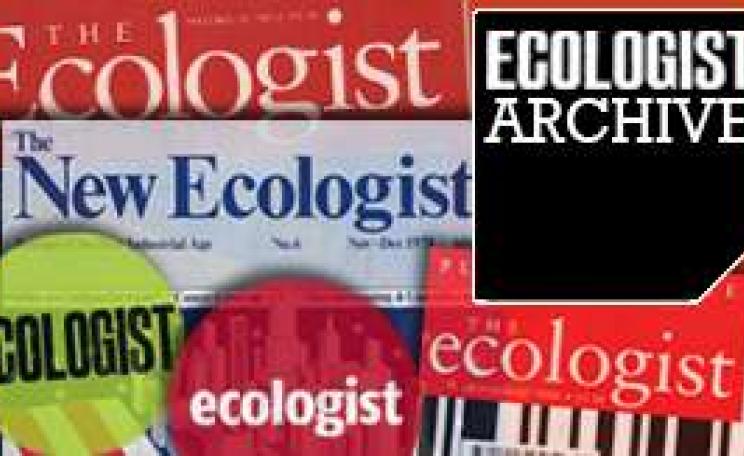The way we measure our economy right now is driving us to destruction.
It is important to remember that the plunging growth charts that have been shocking economists for the past few months measure growth according to GDP (gross domestic product). That it is only one way of looking at what an economy does and – as a Green economist – I’m 100 percent sure it is not the best way.
These macroeconomic measures can feel abstract and hard to grasp so let’s think about how your economic life has changed over the past few months and how that has contributed to these vertiginous falls in GDP. If you have worked from home rather than spending two or more hours a day commuting, you were responsible for the loss of income at petrol stations, and for keeping hold of the money you would have spent on a takeaway coffee or a sandwich lunch, preventing it from circulating through the economy and increasing GDP.
The money you spent on Zoom registrations and cooking for yourself are likely to have cost much less and so contributed much less to GDP.
Calculating
There is no balancing positive addition to the GDP measure to reflect your ability to spend more time in bed, or enjoy a leisurely breakfast of home-cooked pancakes, or to spend more time with your children. The hours your spent marvelling at birdsong, discovering local green spaces, or breathing lungfuls of unpolluted air are irrelevant to GDP.
There is nothing added to this flawed measure of ‘value’ to reflect the fact that you did not have to sit frustrated in your car, pumping out CO2 emissions.
A conventional economist who thinks that GDP is a good way of measuring an economy will be breathing a sigh of relief that at least the health sector has become super-active during the pandemic, generating lots of ‘economic activity’ to balance against the losses suffered by pubs and gyms.
All those extra hours worked by doctors, nurses and carers; all those throwaway gowns and masks being used caring for the sick and dying. Without this Covid-related activity, GDP would look far worse than it does.
There is no balancing deduction from GDP for the pain and suffering that gave rise to this demand for more health-related economic activity. GDP has no way of counting bereavement, death, grief, depression, isolation or depression. It is a measure of our economic life that resolutely ignores what our economy should really be for: increasing the sum of human happiness and natural wealth.
Destruction
In short, when measuring the economy GDP does not distinguish between economic activity that adds to social and environmental well-being and economic activity that destroys it.
For decades now we have been following this false god. So it is no wonder that our economy is conflicting more and more with our natural world and we are growing more depressed and unhappy as we run around the GDP treadmill for the benefit of the masters of spreadsheets.
The absurdity of viewing society through the distorting lens of GDP strikes home starkly when you are told you are failing as a citizen because you aren’t going shopping for luxuries whose production consumed resources and created pollution, or wilfully spreading the Coronavirus at the pub.
These things count in the world according to GDP, while the many hours you have spent looking out for your neighbours, sewing scrubs, collecting prescriptions, and caring for friends and relatives with infinite love and sensitivity count for nothing.
It has become a popular meme that Covid-19 gives us a breathing-space to re-examine what we value. What a tragedy it would be if we failed to act on that opportunity at exactly the point where our government assesses the national value, through our GDP measure. Because the way we measure our economy right now is driving us to destruction.
This Author
Molly Scott Cato is formerly the Green MEP for South West England and Gibraltar and is a professor of economics.







